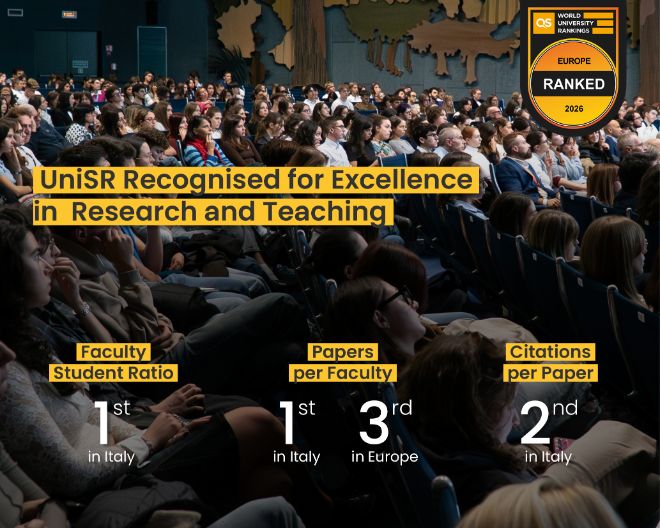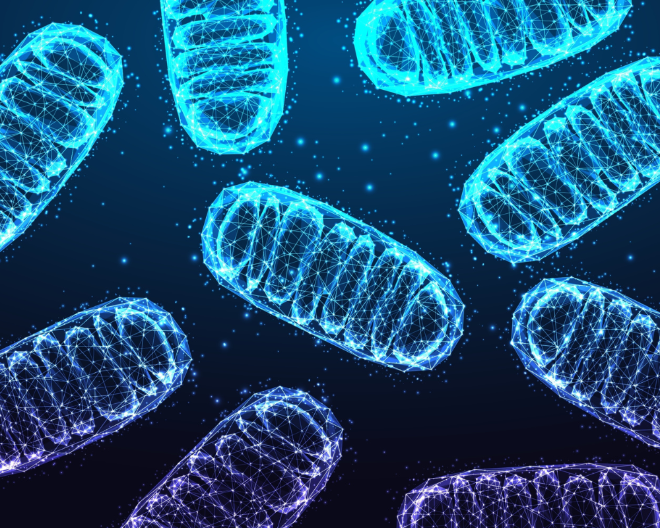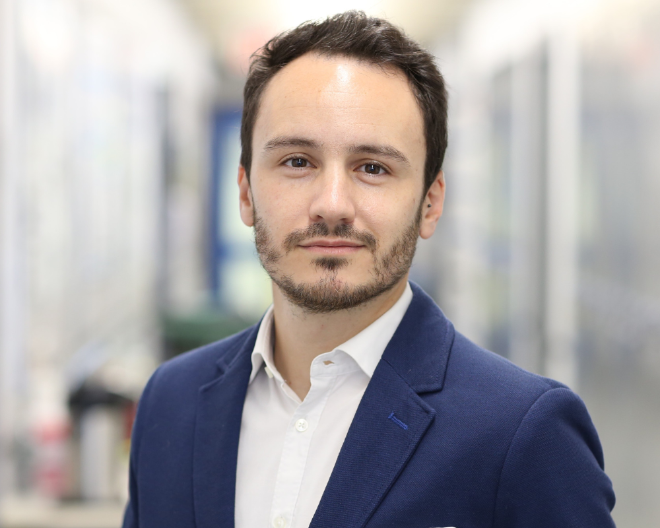Two UniSR researchers among the winners of Telethon call for research on rare genetic diseases

For the third round of Telethon Foundation's Multi-round Call for Proposals, nearly 4 million euros, raised through donations from citizens, have been awarded for excellence in research on rare genetic diseases. A total of 22 projects have been funded throughout Italy, including 2 projects by UniSR researchers.
The Multi-round call was initiated by the Telethon Foundation in 2021 to allow researchers, who wish to apply for funding, to be able to present their projects on four occasions over three years, possibly revising and resubmitting them in light of the expert panel's comments in case of a negative evaluation.
Thanks to this latest allocation, more than 3,000 projects have been funded by the Foundation since its inception. Projects are evaluated through the peer review method on the model of major international research funding agencies, such as the U.S. National Institutes of Health (NIH). Evaluating projects are international or Italian experts working abroad who have no conflict of interest with respect to the project being evaluated. At the time of each call for proposals, the external reviewers who support the Medical Scientific Committee can be identified either from the Telethon Foundation database, which to date has about 9,000, or involved from scratch.

The newly funded projects will enable the study of mechanisms of various genetic diseases and the development of potential therapeutic approaches. The winning projects cover various diseases, including Duchenne muscular dystrophy, tuberous sclerosis, hereditary spastic paraplegia, autism spectrum disorders, hemophilia A, Rett syndrome, epilepsy, and mucopolysaccharidosis.
With this third edition of the multiround call for proposals, the Telethon Foundation continues to work to secure much-needed funds for rare disease research, thanks in part to the indispensable support of scientists and researchers of the highest caliber. The Foundation works to create the conditions so that quality research can generate innovative therapies and solutions that improve patients' quality of life and life prospects. This call is, moreover, a demonstration of the great vitality of the Italian scientific community engaged in the field of rare genetic diseases, judging by the selection of very promising research, from basic studies to translational research,
said Celeste Scotti, director of Research and Development at Telethon Foundation.

UniSR projects financed by the call
Rossella Galli will study tuberous sclerosis (TS), a pathology characterized by the formation of benign tumors in various organs and with various neurological manifestations such as drug-resistant epilepsy, which represents one of the main causes of morbidity and deterioration of the quality of life in patients. Recently, thanks to a new animal model, the research group has investigated various cortical defects, such as alterations in lamination and defective maturation of interneurons, similar to those typically observed in patients and which predispose to the development of epileptic seizures. The research project aims to understand how the dysfunction of neural progenitors in the subventricular area of the brain is involved in the development of cortical anomalies. The aim of the project is to better understand the disease, leading to the possible identification of new drug targets.
The group led by Luca Rampoldi will study autosomal dominant tubulointerstitial kidney disease (ADTKD-UMOD), a pathology caused by mutations in the UMOD gene, which encodes the protein uromodulin. This condition is characterized by progressive damage to the tubules and renal interstitium, leading to loss of renal function. Currently, there are no specific therapies for this genetic disease, other than dialysis followed by transplant. Mutations in the UMOD gene cause abnormal accumulation of uromodulin in the endoplasmic reticulum of producing cells. In this project, we will evaluate the effectiveness of specific dietary interventions in the advanced phase of the disease, we will characterize the molecular events triggered by these interventions and they will test the effectiveness of pharmacological compounds that mimic the beneficial effects of the diet, potentially opening new avenues for the treatment of the pathology.
You might be interested in

UniSR ranked 1st in Italy for Research and Teaching
/resolutions/res-c660x528/Veschetti_Cariplo_P.-Aeruginosa_UniSR-(1).jpg)
Uncovering the hidden role of bacterial microRNAs in chronic respiratory diseases

A New Approach to Enhance Immunotherapy in Multiple Myeloma

